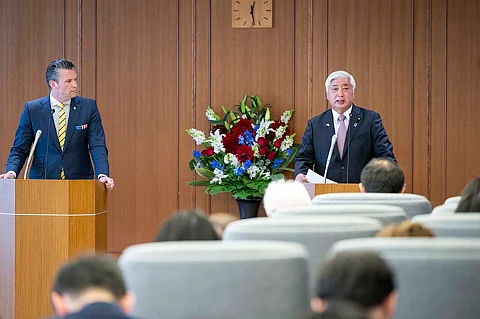

U.S. Secretary of Defense Pete Hegseth announced on Sunday a significant plan to upgrade the U.S. military command in Japan, emphasizing the country's crucial role in countering Chinese military threats. Speaking in Tokyo, Hegseth called Japan an "indispensable partner" in efforts to deter "Chinese aggression," particularly in the Taiwan Strait.
"We share a warrior ethos that defines our forces," Hegseth told Japan's Defense Minister Gen Nakatani, highlighting the strong bond between the two nations. He also noted that Japan is a "cornerstone of peace and security in the Indo-Pacific," reaffirming the Trump administration's commitment to continued cooperation.
Restructuring and Joint Defense Initiatives
The announcement follows a decision last year by the Biden administration to restructure the U.S. military command in Japan. The change aims to enhance coordination between U.S. and Japanese forces as both nations increasingly view China as their "greatest strategic challenge."
The new structure will place a combined operational commander in Japan, aligning with the creation of a joint operations command by Japan’s Self-Defense Forces. This move reflects growing concerns over China’s military assertiveness in the region.
Hegseth's statements on Japan stand in stark contrast to his previous criticism of European allies, where he suggested the U.S. could not guarantee an indefinite military presence in Europe. He reiterated America’s commitment to maintaining a "robust, ready, and credible deterrence" in the Indo-Pacific.
Enhanced Military Collaboration and Strategic Access
Hegseth and Nakatani also discussed the acceleration of joint defense projects, including the production of AMRAAM missiles and potential collaboration on SM-6 surface-to-air missiles to address munitions shortages.
Additionally, Hegseth sought greater access to Japan's strategic southwest islands, located near the East China Sea and Taiwan. This request reflects U.S. concerns about China’s growing influence in the region.
While President Trump had previously urged Japan to increase its financial contribution to hosting U.S. troops, Hegseth emphasized that "America first does not mean America alone." Both sides agreed that Japan would continue to strengthen its defense capabilities, with Nakatani asserting that defense spending would be determined based on Japan's "judgement and responsibility."